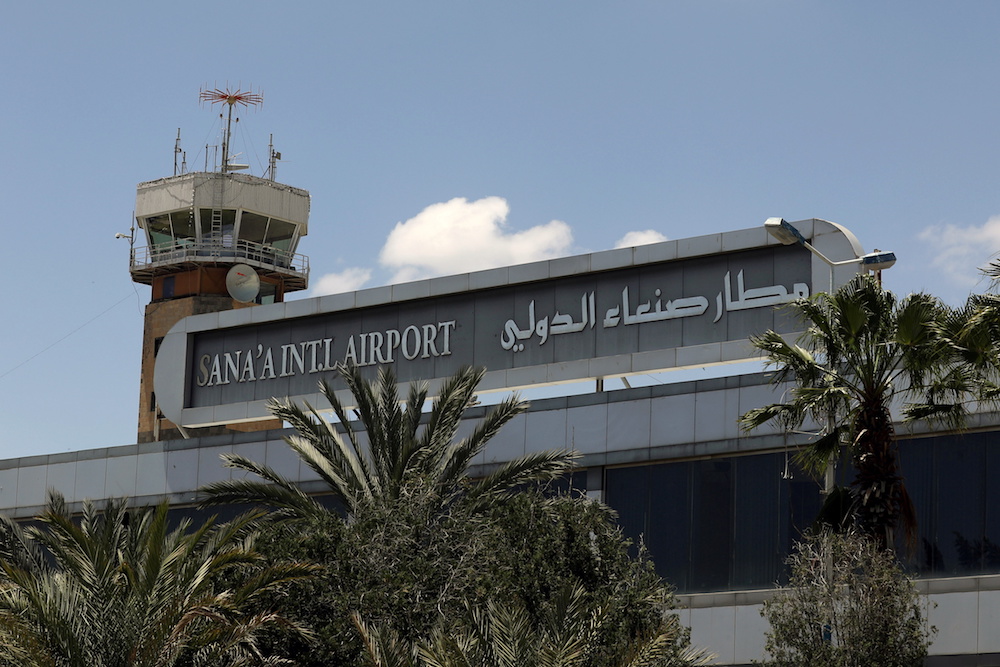RAMALLAH: Israeli forces shot and killed one Palestinian and injured dozens of others on Friday during clashes in the occupied West Bank city of Hebron.
Violent confrontations erupted between Palestinians and Israeli forces during rallies in several West Bank locations to commemorate the 46th anniversary of Land Day, according to Palestinian medical sources.
Ahmad Al-Atrash, 28, a freed prisoner who spent six years in Israeli prisons, died in Hebron Governmental Hospital from a gunshot wound to the chest, doctors said.
Palestinian youths threw stones at Israeli troops, who responded with live bullets, tear gas canisters and sound bombs.
Eyewitnesses said that the army had deployed snipers in areas overlooking Bab Al-Zawiya, Al-Shuhada Street and Al-Shalala Street in anticipation of clashes.
Palestinian groups called for a day of official mourning in Hebron on April 2.
In the Israeli towns of Umm Al-Fahm and the Northern Triangle, dozens of Palestinian youths waving Palestinian flags joined a protest march.
The Red Crescent Society said its crews were among 150 Palestinians wounded in confrontations in Nablus, Beita and Beit Dajan.
Beita Mayor Mahmoud Barham told Arab News that the clashes in the township were the most violent in months, with hundreds of young men involved and at least 120 injuries.
Nine civilians, including two children, were injured by live bullets and tear gas canisters during rallies in the West Bank town of Qalqilya.
Dozens of protesters, including deputy leader of the Fatah movement Mahmoud Al-Aloul, received treatment after inhaling tear gas.
Later Aloul vowed that “popular resistance” will continue.
“It is our choice and there is no turning back from it in light of the expansion of settlements we are witnessing at the expense of our lands,” he said.
Osama Al-Qawasmi, a Palestine Liberation Organization official, told Arab News: “It is clear that Israeli Prime Minister Naftali Bennett has made a decision to clear the path for the killing of Palestinians in cold blood.”
Al-Qawasmi described deaths over the past two days as “field executions.”
Labelling the killing of Palestinians a “war crime,” the PLO official accused Bennett’s government of “trying to silence the Israeli people at the expense of Palestinian blood.”
Israel is dragging the region into a “cycle of action and reaction, which will not serve anyone at all,” Al-Qawasmi said.
“Nobody can control a Palestinian people being killed by Israel, which bears full responsibility for this violence and escalation. If Bennett thinks that killing Palestinians can bring security to Israel, he is delusional.”
Israeli military sources confirmed to Arab News that the Israeli army had deployed two military battalions to the West Bank and two more beside the Gaza Strip in the past few days amid fears of escalating violence at the start of Ramadan.
Mustafa Barghouti, secretary-general of the Palestinian National Initiative Movement, who took part in a rally at Bilin, west of Ramallah, said that the protest was an “escalation of the popular resistance to end the (Israeli) occupation and bring down the racist apartheid regime.”
He added: “The Palestinian people have nothing but the path of struggle and resistance to achieve their freedom.”
Barghouti said that the presence of foreign observers at the rally highlighted the international interest in the Palestinian cause, and encouraged Palestinians to press their demands for global sanctions on Israel.
Israeli military sources confirmed to Arab News that the Israeli army had deployed two military battalions to the West Bank and two more beside the Gaza Strip in the past few days amid fears of escalating violence at the start of Ramadan.




